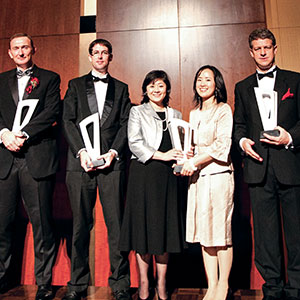At this time of the year, I often stop to think about how the light changes, and the sky, too.
The clouds—when there are any—are different. On other, cloudless days, airplanes’ exhaust vapour leaves chalk trails in skies that are almost impossibly blue.
At the time of writing, to walk along the riverbank is to celebrate the signs of autumn: drifts of leaves in orange, crimson and gold. The carp are lethargic, the turtles hibernating, and at the end of the walk, a snow-capped Mt Fuji stands in the distance.
And so the year begins to wane and we are left to reflect once again.
There was a time when the year-end was all about excitement: Christmas was coming, the geese were getting fat, and as children we delighted in all the pleasures of the season.
There were public decorations, the exuberances in the shops, the Salvation Army’s carolling and the dressing of the tree and promise of presents at home.
For some, too, there was a deeply spiritual dimension, a celebration of a profound mystery. My childhood Christmas memories take a page from poet John Betjeman, though the reality of them was probably a lot more prosaic.
The combination of living so far from the country of my birth for so many years, in a culture that is so very different, plus the very fact of growing older means the year-end is increasingly a time for reflection.
The rituals are different. I write fewer Christmas cards than I ever used to, but I find myself thinking more of friends and loved ones, especially those who are far off and whom I rarely see.
I try to live a life that is both mindful and purposeful, so my year-end meditations tend to focus on remembering the many kindnesses that people have shown me. I also try to put aside and forgive the few discourtesies I may have encountered.
Inevitably, at my age, I sometimes remember people who’ve touched my life in some way and who, within the past year, have gone the way we all must ultimately go.
But there is also the occasional joy of hearing about new souls that friends have welcomed into their families, most often as grandchildren.
I can’t help feeling that, because my birthday falls at this time of year—as a child I resented it being so close to Christmas—I am somehow more susceptible to drift into nostalgia. It’s not only the year that is turning: so, too, am I.
It is hard to believe that were I still living in Britain, I would from this month be officially classified as an old-age pensioner. Time, as we know, plays tricks.
Last month marked the 50th anniversary of an event that was all to do with time, specifically time travel. A little after 5pm on 23 November 1963 (a start time slightly delayed due to coverage of President John F Kennedy’s assassination), the BBC aired the first episode of what was to become one of the corporation’s most successful series.
I still remember the highly unusual theme music, composed by Ron Grainger and realised by Delia Derbyshire in the BBC’s Radiophonic Workshop, which introduced Dr Who and his spaceship the TARDIS (Time and Relative Dimension in Space).
It may have looked like a simple police box you would have found on many a UK street corner in those days, but on the inside it was significantly larger—a concept I found infinitely intriguing.
The time machine could transport its occupants—the doctor and his female companion and helper—to any point in time and space, where they would battle a variety of monsters and evildoers.
Perhaps the most famous of these latter were the Daleks, a group of robot-like exterminators that were responsible for the BBC’s first major success in blockbuster character merchandising.
Yet no one at the start could have guessed that Dr Who would become one of the most recognisable characters on television, albeit having been played to date by 11 different actors, with a 12th lined up for the next series.
Though his appearance may change, the doctor and his commitment to wiping out wrongdoing remain constant.
To get to play the good doctor is somewhat akin to being chosen to portray 007. Some of the finest names in television have been only too willing to play cameo roles in the series.
The Guinness World Records lists Doctor Who as the longest-running science fiction programme in the world.
The 50th anniversary special, incredibly, was aired simultaneously in 90 countries, which simply goes to show the fantastic technical advances that have been made in the last half-century.
I regret that I was unable to see it—I believe it was broadcast here—because it would have taken me back through my own journey in time, when life seemed so much more innocent.






